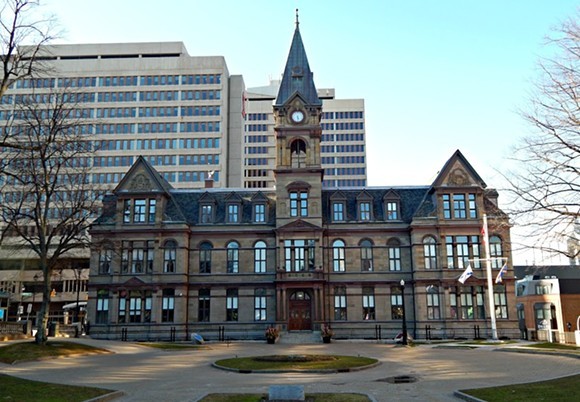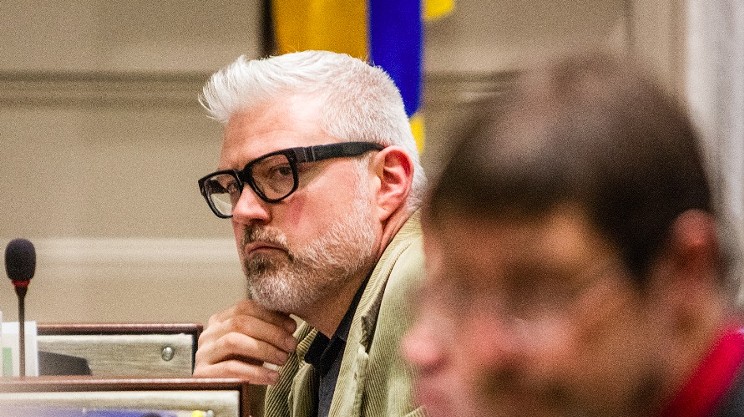Halifax council has approved its first ever set of campaign finance rules, putting restrictions on who can donate and how much can be contributed to a municipal election.
Donations from any corporation, union or organization are now illegal under the new bylaw, which was approved at Tuesday’s meeting. The limit for an individual to donate is now set at $1,000 per councillor, not exceeding $5,000 total per election.
Previously, the sky was the limit. The Municipal Elections Act doesn’t put any restrictions on donations or how much money candidates can spend, leading to a wide disparity between campaigns and accusations that councillors were being swayed by donations from the development community.
A CBC investigation in 2015 determined that one-third of all the donations made in the 2012 municipal election came from developers.
But some councillors take umbrage at the idea that they could be bought for a few thousand dollars every few years.
“I’ve run eight elections since 1999 and nobody has ever bought my vote and nobody will buy my vote,” said Waverley–Fall River–Musquodoboit Valley councillor Steve Streatch.
“Why are we doing this? I guess it’s for transparency. I guess it’s the new norm. I guess the cynicism that appears to be out there these days needs an outlet.”
Dartmouth
“Councillors don’t build cities,” admitted Karsten. “It’s the development community.”
Other campaign finance changes include a maximum spending limit for each candidate, set at $30,000 for each council seat and $300,000 for future mayoral races.
Back in 2012, Mike Savage raised over $300,000 in donations during his inaugural mayoral campaign, arguably the biggest war chest gathered by any municipal politician in Nova Scotia history.
Ever since his election, the mayor has strongly advocated for campaign finance reform.
“We do need this and not because there’s any criminality happening or anything that’s wrong. But you just need to have systems in place,” said Savage.
Candidates and their spouses will also now be limited to spending $15,000 of their own money on their campaign. The restriction is meant to prevent the rich and powerful from having an unfair advantage in an election.
Councillor Russell Walker objected to the idea, however, arguing that anyone who needs more money in a campaign could simply take out a loan from the bank.
That option isn’t available for everyone, countered Halifax Peninsula North councillor Lindell Smith.
“That is a privilege,” said Smith. “Someone from a marginalized community, to be able to go to a bank and say, ‘Can I have $15,000,’ they’re going to laugh at you.”
The new campaign finance rules will limit political contributions to March 1 or later in an election year. Any funds left unspent by the candidates can either
All of these changes, of course, only impact above-the-table contributions. Back in 2006, former councillor Dawn Sloane, told the Chronicle Herald that she was offered and turned down a roll of bills while in a meeting with a local developer. Other councillors likewise told the press they had been offered similar bribes.
“The question’s been asked a couple of times, who are we doing this for?” said Middle/Upper Sackville–Beaver Bank–Lucasville councillor Lisa Blackburn during council’s meeting. “As far as I’m concerned, we’re doing this for my two buddies, democracy and transparency.”
In a separate motion later in the day,




















